Confederate Truths: Documents of the Confederate & Neo-Confederate Tradition from 1787 to the Present.
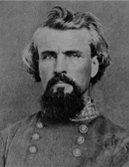

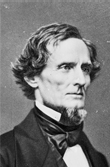
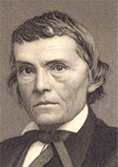

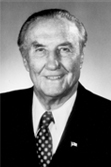
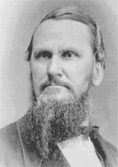
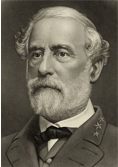
Slave State Congressional Walkout Over Anti-Slavery Speech in U.S. House, They Secede from the U.S. House, Dec. 20 1837
Slave State Congressional Walkout Over Anti-Slavery Speech in the U.S. House
On December 20, 1837, slave state congressional representatives walk out of the House of Representatives to protest an anti-slavery speech by Mr. Slade of Vermont foreshadowing their eventual leaving the Union. It is a dramatic story of the U.S. House descending into anarchy because of the rage of the representatives of the slave holding states.
From pages 11-14 of The Political Text-Book or Encyclopedia Containing Everything Necessary For the Reference of the Politicians and Statesmen of the United States, Edited by M.W. Cluskey, Postmaster of the House of Representatives of the United States, Ninth Edition, Jas. B. Smith & Co., Philadelphia, 1860.
[Page 11]
In the House, at this session, the excitement produced by abolition petitions, &c., was intense. A better description of that excitement, and the action to which it brought the House, cannot be better written than that from the pen of Col. Benton in his valuable historical narrative of his time in the Senate. I give a synopsis of Col. Benton's description of the scene in the House, on the 20th of December, 1837, during the proceedings on the motion of Mr. Slade, of Vermont, to refer two memorials, praying the abolition of slavery in the District of Columbia, to a select committee.
"The immediate occasion of this contest," says Col. Benton, "was the pertinacious effort of Mr. Slade, of Vermont, to make the presentation of abolition petitions the ground of agitation and action against the institution of slavery in the Southern States. Mr. Slade had moved to refer the resolutions presented by him to a select committee, with instructions to report upon them. Upon making this motion, he commenced a violent assault upon the institution of slavery. Mr. Rhett, of South Carolina, interposed to warn him of the consequences of such an inflammatory harangue. Mr. Slade refused to desist, and was interrupted by a motion, made by Mr. Dawson, of Georgia, for an adjournment. The Speaker
[Page 12]
[an upright and impartial southern man] ruled this motion out of order.
"Mr. Slade was proceeding to discuss the question, 'What was slavery?' Mr. Dawson again asked him to give way for an adjournment, which was refused. A visible commotion began to pervade the house—members rising, clustering together, and talking with animation. Mr. Slade continued, and was about reading a judicial opinion of one of the southern States, defining a slave to be a chattel, when Mr. Wise called him to order for irrelevancy. 'The question being upon the abolition of slavery in the District, and the argument upon the legality of slave title in a Slate.' The Speaker decided that it was not in order to discuss the subject of slavery in the States. Mr. Slade contended that he read the decision as he might have done that of an English court. Mr. Robinson, of Virginia, moved an adjournment. The Speaker decided the motion out of order, and Mr. Slade refused to yield the floor, and continued his speech. Mr. Slade proceeded at great length, when Mr. Petrikin, of Pennsylvania, called him to order. The chair did not sustain the call. Mr. Slade went on quoting from the Declaration of Independence and the constitutions of the several States, and had got to that of Virginia, when Mr. Wise called him to order for reading papers without the leave of the house. The speaker then said that no paper objected to could be read without leave of the house.
"'Mr. Wise then said that the gentleman had wantonly discussed the abstract question of slavery, going back to the very first day of its creation, instead of slavery as it now existed in the District, and the powers and duties of Congress in relation to it. He was now reading the State constitutions to show that as it existed in the States it was against them, and against the laws of God and man. This was out of order.'
"Mr. Slade explained, and argued in vindication of his course; he was about to read a memorial of Dr. Franklin* and an opinion of Mr. Madison upon the question of slavery, when Mr. Griffin, of South Carolina, objected to the reading. Mr. Slade, without asking the permission of the House, which he knew would not be granted, proposed that the clerk should read the document. To this the Speaker objected, that it was equally out of order for the clerk to read. Mr. Griffin withdrew the objection, and Mr. Slade proceeded to read the papers and comment upon them. He was about to return to the state of opinion in Virginia upon the subject of slavery before Dr. Franklin's memorial. Mr. Rhett inquired, 'What the opinions of Virginia fifty years since had to do with the case?' The Speaker was about to reply when Mr. Wise rose, and, with much warmth, said: 'He has discussed the whole abstract subject of slavery—of slavery: in Virginia—of slavery in my own district, and I now ask all of my colleagues to retire with me from this hall.' Mr. Slade reminded the
* See page 5-6.
Speaker that he had not yielded the floor, but his progress was interrupted by the condition of the House, and the exclamations of members. Amongst them Mr. Holsey, of Georgia, was heard calling on the delegates from that State to withdraw with him; whilst Mr. Rhett was heard proclaiming that the members from South Carolina had already consulted together and appointed a meeting at three o'clock, in the committee-room of the District of Columbia. Here the Speaker succeeded in getting the floor, and stating the question to be on granting leave to the member from Vermont to read certain papers, the reading of which had been objected to. Many members rose, all addressing the chair at the same time, and the general scene of noise and confusion continued.
"'Mr. Rhett succeeded in raising his voice above the roar of the tempest which raged in the House, and invited the entire delegation from all the slave States to retire from the hail forthwith, and meet in the committee-room of the District of Columbia.'
"The Speaker rose to a personal explanation, and succeeded in recapitulating his decisions and vindicated their correctness. 'Had it been in his power,' he said, 'to restrain the discussion, he should have done so. But it was not.'
"Mr. Slade continuing, said the paper he was about to read was one of the Continental Congress of 1774. The Speaker was about to put the question of leave, when Mr. Cost Johnson inquired if it 'would be in order to force the member from Vermont to stop?' The impartial chair said, in despair, that it could not be done. The indomitable Slade proceeded in triumph. 'Then Mr. McKay, of North Carolina, a clear, cool-headed, sagacious man, interposed the objection that headed Mr. Slade. 'The rule of the House required that when a member was called to order, he should take his seat: and, if decided to be out of order, he should not be allowed to speak again without the leave of the House. Mr. McKay stated the point of order, and said that he now objected to Mr. Slade's proceeding. 'Redoubled noise and confusion ensued— a crowd of members rising and speaking at once, they at last yielded to the noise of the Speaker's hammer, and his apparent desire to read something from a. book—recognised to be the Manual—which he held in his hand, he at last succeeded in reporting the rule referred to by Mr. McKay, and sustaining his motion. Mr. Slade endeavored to proceed. The Speaker directed him to take his seat until the question of leave should be put. Then Mr. Slade—still keeping on his feet—asked leave to proceed in order. On that question Mr. Allen, of Vermont, asked the ayes and nays. Mr. Reacher, of North Carolina, moved an adjournment. Mr. Adam and others demanded the ayes and noes upon this motion. They were called, and resulted 106 ayes, 63 noes—some fifty or sixty members having withdrawn."
The vote against adjournment follows:—
[Page 13]
Messrs. John Quincy Adams; Alexander of O.; Allen, of Vt.; Allen, of O.; Aycrigg, of N. J.; Bell, of Tenn.; Biddle, of Pa.; Bond, of O.; Borden, of Mass.; Briggs, of Mass.; Calhoun, of Mass.; Coffin, of O.; Cranston, of R. I.; Curtis, of N. Y.; Cushing, of Mass.; Darlington, of Pa.; Davies, of Pa.; Dunn, of Ind.; Evans, of Me.; Everett, of Vt.; Ewing, of Ind.; Fletcher, of Vt.; Fillmore, of N. Y.; Goode, of O.; Grennell, of Mass.; Haley, of Conn.; Hall, of Vt.; Hastings, of Mass.; Henry, of Pa.; Herod, of Ind.; Hoffman, of N. Y.; Lincoln, of Mass.; Marvin, of N. Y.; Mason, of O.; Maxwell. of N. J.; McKennan, of Pa.; Milligan, of Del.; M. Morris, of Pa.; C. Morris, of O.; Naylor, of Pa.; Noyes, of Me.; Ogle, of Pa.; Parmenter, of Mass.; Patterson, of N. Y.; Peck. of N. Y.; Phillips, of Mass.; Potts, of Pa.; Potter, of Pa.; Rariden, of Incl.; Randolph, of N. J., Reed, of Mass.; Ridgway, of O.; Russell, of N. Y.; Sheffer, of Pa.; Sibley, of N. Y.; Slade. of Vt.; Stratton, of N. J.; Tillinghast, of R. I.; Toland, of Pa.; White, of Ind.; White, of Ky.; Whittlesey, of O.—63.
"This opposition to adjournment," says the historian, "was one of the worst features in this unhappy day's work—the only effect of keeping the house together being to increase irritation, and multiply the chances of an outbreak. From the beginning Southern members had voted to adjourn, but were prevented from succeeding by the tenacity with which Mr. Slade kept possession of the floor; and now, at last, when it was time to adjourn any way—when the House was in a condition in which no good could be expected, and great harm might be apprehended—there were sixty-three members willing to continue it in session. When the adjournment passed, Mr. Campbell stood up in a chair, and calling for the attention of members, invited all of the southern delegations to attend the meeting then being held in the committee-room of the District of Columbia.
"Members from the slaveholding States had repaired to the appointment, agitated by various passions. We give a report of the propositions, presented from a letter written by Mr. Rhett:
"'In a private and friendly letter to the editor of the Charleston Mercury, amongst other events accompanying the memorable secession of the southern members from the hall of the House of Representatives, I stated to him that I had prepared two resolutions, drawn as amendments to the motion of the member from Vermont, whilst he was discussing the institution of slavery in the South, 'declaring, that the constitution having failed to protect the South in the peaceable possession and enjoyment of their rights and peculiar institutions, it was expedient that the Union should be dissolved; and the other, appointing a committee of two members from each State, to report upon the best means of peaceably dissolving it.' They were intended as amendments to a motion to refer with instructions to report a bill, abolishing slavery in the District of Columbia. I expected them to share the fate which inevitably awaited the original motion so soon as the floor could have been obtained, viz.: to be laid upon the table. My design in presenting them was, to place before Congress and the people what, in my opinion, was the true issue upon this great and vital question; and to point out the course of policy by which it should be met by the southern States.'
"'But extreme counsels did not prevail. There were members present who well considered that although the provocation was great and the number voting for such a fire-brand motion was deplorably large, yet it was but little more than the one-fourth of the House, and decidedly less than one-half of the members from the free States: so that, even if left to the free State vote alone, the motion would have been rejected. But the motion itself, and the manner in which it was supported, was most reprehensible—necessarily leading to disorder in the House, the destruction of its harmony and capacity for useful legislation, tending to a sectional segregation of the members, the alienation of feeling between the North and the South, and alarm to all the slaveholding States. The evil required a remedy, but not the remedy of breaking up the Union; but one which might prevent the like in future, while administering a rebuke upon the past. That remedy was found in adopting a proposition to be offered to the House, which, if agreed to, would close the door against any discussion upon abolition petitions in future, and assimilate the proceedings of the House, in that particular, to those of the Senate. This proposition was put into the hands of Mr. Patton, of Virginia, to be offered as an amendment to the rules at the opening of the House the next morning. It was in these words:
"'Resolved, That all petitions, memorials; and papers touching the abolition of slavery, or the buying, selling, or transferring of slaves, in any State, District, or Territory of the United States, be laid on the table without being debated, printed, read, or referred, and that no further action whatever shall be had thereon.'
"Accordingly, at the opening of the House Mr. Patton asked leave to submit the resolution—which was read for information. Mr. Adams objected to the grant of leave. Mr. Patton then moved a suspension of the rules, which motion required two-thirds to sustain it; and, unless obtained, this salutary remedy for an alarming evil (which was already in force in the Senate) could not be offered. It was a test motion, and on which the opponents of abolition agitation in the House required all their strength; for, unless two to one, they were defeated. Happily the two to one were ready, and on taking the yeas and nays, demanded by an abolition member (to keep his friends to the track, and to hold the free-State anti-abolitionists to their responsibility at home), the result stood 135 yeas to 60 nays—the full two-thirds, and fifteen over.
"This was one of the most important votes ever delivered in the House. Upon its issue depended the quiet of the House on one hand, or on the other the renewal and perpetuation of the scenes of the day before—ending in breaking up all deliberation and all national legislation. It was successful, and that critical step being safely over, the passage of the resolution was secured―the free-State
[Page 14]
friendly vote being itself sufficient to carry it; but, although the passage of the resolution was secured, yet resistance to it continued. Mr. Patton rose to recommend his resolution as a peace offering, and to prevent further agitation by demanding the previous question.
"Then followed a scene of disorder, which thus appears in the Register of Debates:
"'Mr. Adams rose and said: Mr. Speaker, the gentleman precedes his resolution―[Loud cries of 'Order! order!' from all parts of the hall.] Mr. A. He preceded it with remarks—['Order! order!']
" 'The Chair reminded the gentleman that it was out of order to address the House after the demand for the previous question.
"Mr. Adams. I ask the House—[Continued cries of ‘Order!' which completely drowned the honorable member's voice.']
"Order having been restored, the next question was, 'Is the demand for the previous question seconded?' which seconding would consist of a majority of the whole House; which, on a division, quickly showed itself. Then came the further question, 'Shall the main question be now put?' on which the yeas and nays were demanded and taken; and ended in a repetition of the vote of the same 63 against it. The main question was then put and carried; but again, on yeas and nays, to hold free-state members to their responsibility; showing the same 63 in the negative.
"Thus were stifled, and in future prevented in the House, the inflammatory debates on these disturbing petitions. It was the great session of their presentation, being offered by hundreds, and signed by hundreds of thousands of persons—many of them women, who forgot their sex and their duties to mingle in such inflammatory work; some of them clergymen, who forget their mission of peace to stir up strife among those who should be brethren. It was a portentous contest. The motion of Mr. Slade was, not for an inquiry into the expediency of abolishing slavery in the District of Columbia, (a motion in itself sufficiently inflammatory), but to get the command of the House to bring in a bill for that purpose—which would be a decision of the question. His motion failed."
The resolution of Mr. Patton was adopted by a vote of yeas 122, nays 74. The negative vote on this resolution was the same as on the adjournment previously recorded, with the exception that Messrs. Adams, Aycrigg, Bell, and White, who voted against adjourning, did not vote against the resolution. Mr. White voted for the resolution. The others named did not vote at all. Messrs. Bronson, of N. Y., Chaney of Ohio, Duncan of Ohio, Fletcher of Mass., Foster of N. Y., Graham of Ind., Hamer of Ohio, Ingham of Conn., Kilgore of Ohio, Leadbetter of Ohio, Shepler of Ohio, Smith of Me., Toucy of Conn., Webster of Ohio, and Yorke of N.J., also voted against the resolution of Mr. Patton.